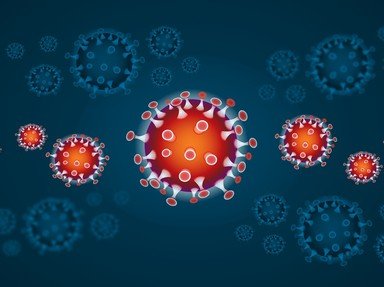Quiz Answer Key and Fun Facts
1. Having HIV is the same thing as having AIDS.
2. The prevalence of HIV infection is approximately one in every 1000 adults (worldwide) aged 15 to 49.
3. Of the over 34 million adults living with HIV or AIDS, approximately 47 percent are women.
4. Women can pass HIV to their babies during pregnancy or birth.
5. HIV can be transmitted to babies through the breast milk of infected mothers.
6. The risk factors of HIV transmission can include sexual contact with an infected partner, contact with infected blood, and sharing needles or syringes contaminated by blood infected by the virus.
7. HIV can be transmitted through casual kissing.
8. HIV can be transmitted by using common eating utensils, toilet seats, swimming pools, telephones, and by mosquitoes.
9. Having another sexually transmitted disease (like herpes, gonorrhea, bacterial vaginosis, syphilis, chlamydial infection, etc) makes a person more at risk of acquiring HIV during sex with an HIV infected partner.
10. A person who has acquired HIV will immediately have a certain 'look' or appearance.
11. Two types of tests that are used to diagnose HIV infection are the ELISA and the Western Blot.
12. The main thing an adult can control in preventing HIV is avoiding behaviors that put a person at risk for the virus. Some risk factors, such as getting blood transfusions in the past, before blood was tested, are not controllable.
13. Spermicides kill HIV in humans.
14. The risk of HIV transmission from a pregnant mother to her baby can be drastically reduced if she takes AZT during pregnancy, she takes AZT during labor and delivery, AND her baby takes AZT for the first six weeks of life.
15. HIV kills a person directly.
16. Everyone infected with HIV eventually gets AIDS.
17. HIV infected people who get early treatment by an HIV specialist live longer.
18. In the event of an accidental, occupational (such as a health care worker) needlestick, the best thing to do is flush the wound with bleach.
19. Male condoms should be made of latex or polyurethane, and only water or silicone-based lubricants should be used.
20. AEGIS stands for The AIDS Education Global Information System.
Source: Author
Linda1
This quiz was reviewed by our editing team before going online.
Any errors found in FunTrivia content are routinely corrected through our feedback system.

